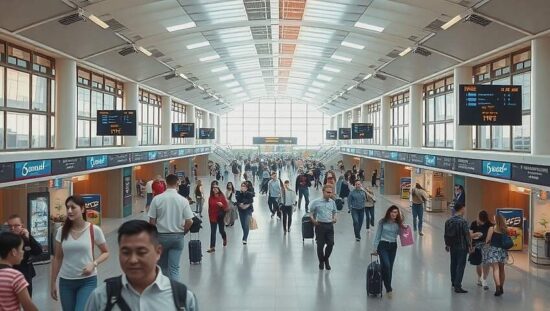A growing chorus of concern is reverberating through Germany’s aviation sector, prompting calls for a significant reduction in the controversial Luftverkehrsteuer, or aviation tax, levied on domestic flights. Christoph Ploß, the Federal Government’s Coordinator for Maritime Economy and Tourism, has publicly advocated for a swift easing of the tax, arguing it is actively undermining the viability of crucial regional connections and threatening the nation’s aviation industry.
The move, echoed by industry representatives, represents a direct response to the warning bells sounded by Lufthansa, Germany’s largest airline. Three weeks ago, Lufthansa’s CEO, Jens Ritter, cautioned that unprofitable routes, specifically highlighting airports in Bremen, Dresden, Cologne, Leipzig, Münster, Nuremberg and Stuttgart, could face elimination, potentially leading to aircraft redeployment elsewhere. This veiled threat has fuelled speculation about a significant reshaping of Lufthansa’s network.
Ploß’s suggestion – a phased reduction beginning with domestic flights – aligns with proposals originating within the aviation industry, including a call to tax return flights within Germany only once. He frames the issue as more than just an airline concern, linking the tax burden to broader economic fallout and declining tourism. “The increasing loss of domestic and international flights is a direct consequence of excessively high location costs across Germany” he stated, emphasizing the impact on regional economies.
The current situation is exacerbated by the coalition government’s commitment, theoretically enshrined in their agreement, to provide relief for the aviation sector. However, tangible action remains conspicuously absent. The decline in domestic flights has been dramatic: according to the German Aviation Association (BDL), the number of flights has plummeted by 84% since 2019, with a staggering reduction from 238,600 flights six years ago to a projected 117,600 this year.
BDL CEO Joachim Lang insists that a repeal of the increased aviation tax would not only revitalize the German market, but also incentivize airlines to expand international routes and long-haul services. The prospect of revisiting this tax policy underscores a growing tension within the German government: balancing environmental concerns and the immediate economic realities facing a vital sector. Failure to act, critics warn, risks isolating regional economies and crippling a key infrastructure pillar.





